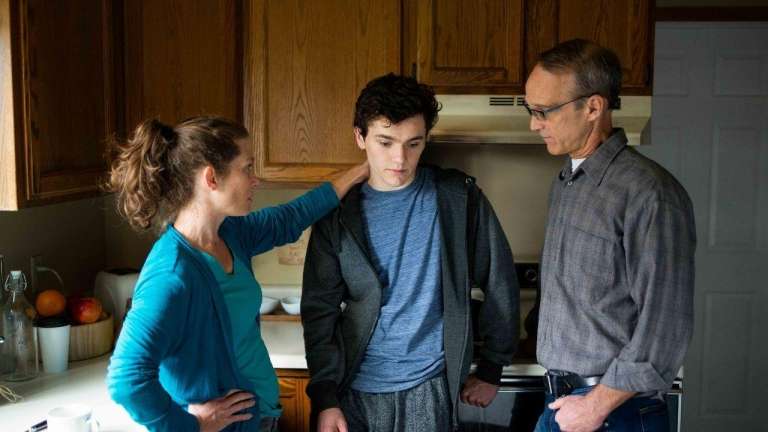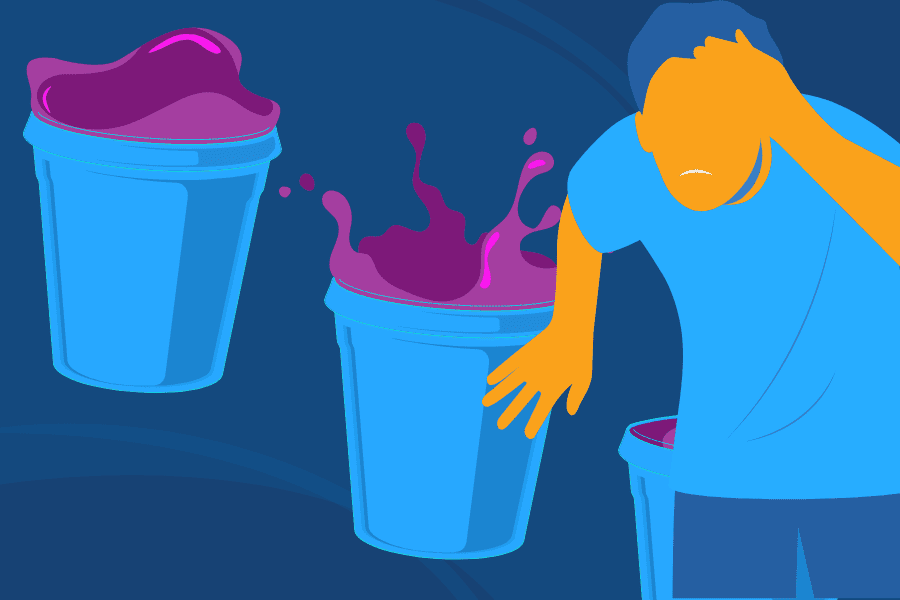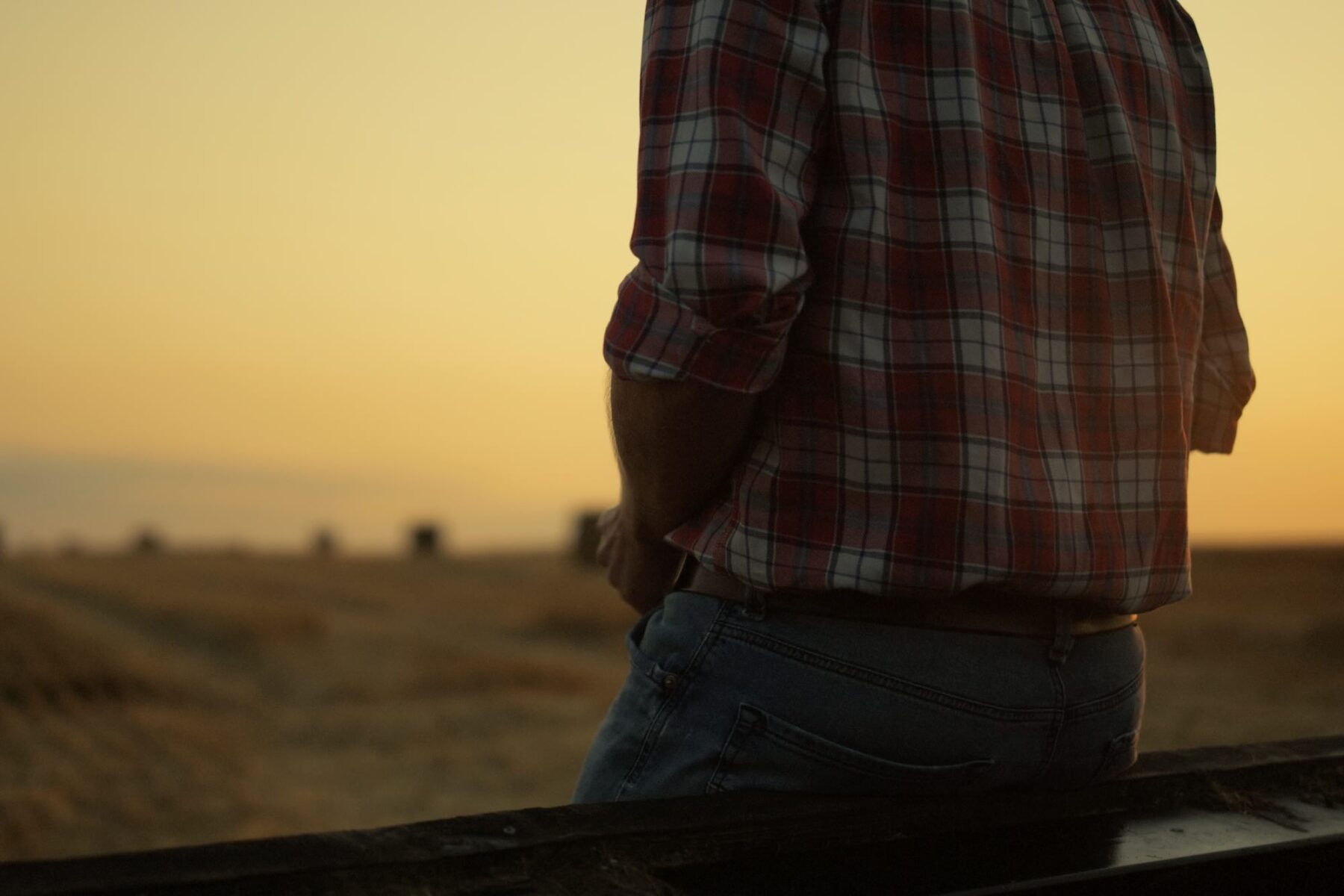We sat down with Chief Clinical Director Sarah Fletcher to answer common questions about substance use in teens and young adults.
How Often Do Teens And Young Adults Enter Treatment For Substance Use?
When we look at substance use in teens and young adults, we’re really looking at a population that is rising. This is especially true within the last year, with the pandemic we’ve all experienced.
In 2017, there was a study done that said around one in 12 Americans will struggle with a substance use disorder. And the highest number of that really comes into teens and young adults, a lot of times because they’re going through adolescence, they’re gaining a sense of identity, etc.

What Is Substance Use Disorder (SUD) Or Substance Abuse, And What Does It Look Like In Teens And Young Adults
A substance use disorder is categorized by a couple of different things. So identifying substance abuse is really just the excess use of substances that comes to the point of interfering with your daily life. This can include:
- missing school
- missing work
- pulling back from activities that you enjoy
- disinterest in spending time with family
Then when we look at an actual substance use disorder, that comes into gaining a tolerance. So, do you need more of that substance in order to gain the achieved effect? It can also include withdrawal symptoms, so symptoms that make you feel icky or sick when you don’t use that substance.
After that, we look at natural consequences. Are there any legal consequences from your use? Have we lost family or friends due to our use? It’s important to look at those interpersonal relationships, and also assess your ability to carry out things that you enjoy.

Finally, we have to look at the mental health side of things as well. Are we seeing an increase in sadness, hopelessness, disinterest in activities? Do we notice that those interests return with the use of substances? Answering “yes” to these questions can categorize that as a dependence on the substance.
How Quickly Can My Teen Build Up A Tolerance To Drugs Or Alcohol?
When we look at building tolerance and the substance use disorder realm, it’s really a spectrum. So there are some substances that individuals can use that they gain a tolerance very quickly too, then there are other substances that can take some time to really develop a dependence on.
What Causes Some People To Build A Tolerance To Drugs Or Alcohol Faster Than Others?
So you’re looking at a couple of different factors, like frequency and the pressures and lack of natural coping skills that individuals have. If we develop a tolerance fairly quickly, it’s often due to the frequency of use. And then it’s coupled with the inability to find other things that you enjoy that can bring you to consistent use.
It is a spectrum of different factors that contribute to frequency. But tolerance can really be developed in a short amount of time, as short as two to three weeks, depending on the frequency of use.
The other factor you’re looking at that causes some people to build a tolerance faster than others is genetic predisposition. So is there a family string of others who have struggled with substance use?
If Someone Has Had An Addiction Problem Before Having A Child, Does That Impact The Likelihood Of The Child Struggling With Addiction Someday?
It’s definitely possible. There are studies that have shown there is a genetic component to substance use disorders and addiction as a whole.
Now, there are also individuals who come from addicted families, adult children of alcoholics, and they do not develop a substance use disorder. And so there is that nature versus nurture argument. There’s also folks who experience and struggle with substances who do not come from families with a history of addiction.

Overall, it really goes back to the nature of the environment, the ability to develop healthy coping skills, and then also looking at mental health as a whole as well, because the two are very closely intertwined. It’s very rare that we see a substance use disorder without some sort of mental health component included in that.
Can A Child Become An Addict Without A Genetic Predisposition?
I get a lot of parents that come in and they try to convince me that they’re not bad parents, and nobody at Sandstone has any sort of judgment or preconceived notion that parents are doing anything but loving their kids and really doing the best that they can.
I think that’s one of the pieces of the stigma that comes along with substance use and mental disorders that Sandstone Care really tries to alleviate and break. We recognize that there are so many different factors that contribute to substance use disorders.
There is no one recipe that can guarantee that your loved one isn’t going to develop an addiction. And that’s honestly what makes addiction so scary is because there isn’t some identified addict, everybody and anybody can be impacted and affected by substance use.
What Are The Personality Traits Of A Person With A Substance Use Disorder?
There are no character traits that are proven to automatically lead you to substance use. However, you can look for signs and symptoms and events throughout your kid’s adolescence that may increase the chances that a substance use disorder will develop. Some of those traits are: isolation, disinterest in activities or people that were previously enjoyed, and trouble at school or work.
When we’re looking for signs and symptoms of substance use disorders, we also want to look at that person as a whole. If they’ve been through anything recently, that could cause stress or increased isolation.

If there’s somebody who’s having trouble at school, or they’re missing work, or they recently just went through a big life change – those are all things that really require coping skills, natural coping skills.
If folks have not learned how to naturally cope with big life events, it’s really easy to turn to substances to be able to find a way to relax and to self-soothe.
How Do You Talk To Your Child About Possible Substance Abuse?
When it comes to talking to your kids, you always have to come from a place of curiosity and non-judgment. And as we know, that can be really, really difficult.
Especially when you’re scared, you’re nervous, you’ve noticed some big mood swing changes, or some pulling back from activities that your kid used to enjoy. With all of that, it’s super important to ask questions, be prepared for the answers. And then again, always come from a place of curiosity.
1. Steer Clear of “Why” Questions
Depending on how we ask it, using the word “why” in a question can automatically insinuate judgment. I like to use questions like “Can you help me understand what’s happening?” or “Do you feel comfortable sharing this with me?”
“Open-ended questions, which do not have a Yes or No answer, can also be helpful. Your child may feel like they are being interrogated if asked closed questions. It can also raise your child’s defenses. The idea here is that you want to open up the conversation to talk with your child. Start your question with words like How or What. It allows you to encourage discussion and learn more about how your child is doing.”
“How was your night last night?” vs. “Did you drink last night?”
“What could be different if you changed your use of ______________?”
vs. Don’t you want to get better?”
Cathy Taughinbaugh | Certified Parent Coach
2. Provide a Safe Space
Staying very calm and focused and really practicing reflective listening is important so that your child feels safe in their environment, because the stigma that comes with substance use insinuates shame and guilt.
We really want to remove that stigma at Sandstone Care. Because if your child is brave enough to share about what they’re going through, we want to praise them for that.
What Is Reflective Listening?
Reflective listening is a communication strategy involving two key steps: seeking to understand a speaker’s idea, then offering the idea back to the speaker, to confirm the idea has been understood correctly. When reflective listening, try to refrain from giving advice or opinions.
Example Of Reflective Listening
Teen: “I’ve been so angry and depressed lately”
Listener: “It sounds like you’ve been feeling depressed recently.”
3. Practice Understanding and Support
We want to be really unconditionally supportive, because that’s the only way that you’re going to be able to get your child the help they need. And that’s also what they’re going to experience when they come to a therapeutic environment. So the more you can practice reflective listening, coming from a place of curiosity, and really understanding what’s being shared with you, the farther you will get in the conversation.
What Other Factors Should I Keep In Mind When Talking To My Child About Substance Use?
Tone makes a huge difference. And nonverbals make a huge difference. Especially when we’re still learning how to communicate with each other in family therapy, nonverbals can cause a family session to completely turn upside down.
The same thing happens when you’re curious and you’re asking questions about substance use, or maybe the mood changes that you’ve experienced with your child lately. Tone and your nonverbals are likely going to communicate more than what you’re actually verbalizing.
And so for me, my recommendation is this:
Never ever address your child when you’re frustrated, or when you’re angry.
This recommendation is specific to the topic of substance use, because we know that in life, there’s naturally going to be disagreements. And to be honest, I think dynamic disagreements are necessary in every healthy family. Because we need to be able to express our opinions, we’re all different people.
However, when we come to learning about substance use in particular, we are really trying to find an authentic response from our child. And that’s not going to happen if we’re coming to the table with our own frustrations, stress, fear, etc.

Unfortunately, those are all really natural responses to learning that someone you love has a substance use disorder. You’re thinking, “I don’t know if my kid is going to be okay. I don’t know what they’re going through.”
That’s why my recommendation is always to take the time you need before you address your child about this. And make sure, again, that you’re ready to hear those responses. Because if you’re asking really tough questions, you have to be prepared to get really tough answers.
It’s a very emotionally tough process, and that’s why it’s important to reach out for support. I always recommend that parents practice their own self care and receive their own individual therapeutic support, because this is really a family systems process. It’s not just the child who’s struggling. It’s an entire family dynamic that’s usually struggling in this case.
What Are Some Negative Nonverbal Cues That Could Change The Conversation Dynamic When Talking To Your Teen About Drugs or Alcohol?
The main nonverbal cue that I see that really causes a lot of shutdown and disengagement with kids is sighs. So a big, long, drawn out sigh, usually stemming from feeling overwhelmed.
Also, things like lack of eye contact or eyerolls – these things really just naturally insinuate shame, right? They insinuate that something’s wrong with me (the child), and it’s so bad that you can’t handle what I’m sharing with you.
How Can I Stop Myself From Using These Nonverbal Cues?
While we can try to avoid these things, we have to recognize that they’re very natural responses. It can feel a little out of your element to say, “Oh my gosh, I need to make sure that I don’t sigh during the situation!”
So a lot of times it takes practice – and that’s not to say that if you sigh, or give an eye roll that the entire situation is blown.
My recommendation would be that if we start to experience these nonverbal cues, say, “You know, I’m feeling pretty overwhelmed by what you just shared with me. And I’m really glad that you felt safe enough to share it with me.”
In this way you can counteract some of those natural nonverbal responses by sharing verbally what is happening for you, because being open, honest, and human really creates a safe place for your child to also practice that open communication.
How Does Self-Regulation Play A Role In Talking To Your Kids About Substance Abuse?
You need to practice your own self-regulation before you’re going to enter into a really triggering conversation. Because if you’re not regulated, and you’re not able to at least name when you feel overwhelmed, there’s no way that your child or your loved one is going to be able to mirror that for you.
A lot of times modeling the behavior that we want to see creates that safe place for the person that we’re talking to, to mirror us and be able to bring that behavior back.
What Is Self-Regulation?
Self-regulation is the ability to remain calm, cope with big emotions, adapt, and respond appropriately to our environment.
Example Of Self-Regulation
Instead of acting impulsively or yelling when my brother told me he broke my camera, I took a deep breath and spoke to him calmly.
Are There Any Other Type Of Verbal Cues Or Ways That You Phrase Things That Could Distract From What You’re Saying When Talking To Your Child About Substance Use?
When we talk about cognitive distortions, there’s a list of all sorts of different ways that we can kind of distort the way that we’re thinking about something and give it an overgeneralization.
“You always come home late!” Well, probably not always, but it can feel that way. When you’re in the moment and you’re feeling really overwhelmed, and you’re having feelings of frustration, of course, it can feel like this always happens.
My recommendation to families is to try to steer away from those hard “all or nothing” statements.
The other piece that I really try to focus on is finding hope. When we are in a really low space, it’s really easy to just assume that we’re never going to get out of that space. And a lot of times when families come and seek treatment, they are in a really low place, and they feel really hopeless.
So instead of resorting to that all or nothing thinking, I really tried to practice a mindset switch from “I’m feeling really hopeless” to, “I feel like I’ve tried A, B and C and it hasn’t worked. And I recognize that there’s other things that we can do.”
What Are Some Of The Risk Factors For Addiction? What Causes A Teen Or A Young Adult To Become Addicted In The First Place?
When we look at what “brings on” a substance use disorder, it’s easy to try and find the exact moment where the scale is tipped or that line is crossed. But in reality, curiosity and experimentation usually fuel the first few times an adolescent uses drugs or alcohol.
I can’t tell you how many clients that I’ve worked with who come to me and we talk about how they first started using substances, and it goes like this:
“I was told early on that if I use a certain drug I will immediately become addicted to it, my life will turn upside down, and everything will be terrible.
Then I started to see people at my school, friends, and siblings trying the drug…and I started to wonder how truly dangerous it could be. It actually sounds fun, and they experiment with drugs and have no negative consequences, so I’m going to try it.”
Once the young adult begins to experiment with substances and nothing bad happens, what happens then is that any sort of education they’ve received is now not credible.
And so when we look at experimentation versus moving into a true substance abuse or substance use disorder, I’d really like to press on early onset education. We have to learn and share the truth about substance use.
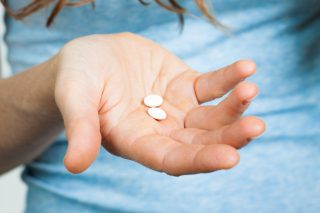
Most of the time, if adolescents try a substance, they aren’t going to become heavily addicted and they’re not going to gain a super high tolerance. That’s not to say the substance isn’t dangerous, and that it can’t have negative consequences,
But I think we really need to be honest about what those consequences are and what the risk factors are. Does this person struggle with depression or anxiety? For many young people, using substances can become a good coping skill.
It’s not a healthy coping skill, and this behavior can also lead to really serious addiction. But when we’re not taught early coping skills of how to manage, feeling hopeless, or or feeling really anxious, we start to use those substances. And they help.
And so it really what we’re looking for, and how someone becomes addicted, is we’re looking for a form of self soothing and self medication. And then when does that experimentation become a problem?
The other thing is, a lot of times adolescents feel invincible, and they also think that they can get away with everything. We think we’re really smart when we’re teenagers. And to be honest, teens are incredibly clever. So when they get caught using substances or partying with their friends, we often go straight to punishment and consequences, and we make the mistake of skipping the education opportunity.
This is again where communication comes in. Some things you can say are,
- “This is an unacceptable behavior, and we don’t want this to continue to happen.:
- “Let’s talk realistically about what substance you’re using.”
- “I really want to understand what the reasoning is behind your use.”
And that really leads us to a rich education dialog where we can talk about natural consequences and risk factors, hey, this is actually what could happen to you down the line.
How Can I Listen To My Child, But Also Give Consequences When It Comes To Drinking Or Doing Drugs?
First and foremost, we want to seek to understand what’s really happening with your kid. That can be really, really tough for your teen to articulate when they are going through adolescence and trying to figure out their own identity.
Once you seek to understand, it’s easier to approach from a supportive level. I’m not saying that consequences aren’t necessary. But it is a two way street: we need to understand what’s backing those decisions before we can find a way to curve those decisions.
So the first step is to come to a place where we both understand each other. Another thing I think is important is that when we do give consequences, especially when it’s surrounding substance use, there has to be education behind it.
DO Say Things Like:
“Hey, this is the consequence for the behavior that you presented, and I want you to understand why I feel nervous and scared about this behavior.”
DON’T say things like:
“You’re wrong, you should have done this better.”
It really comes from the standpoint that you want to keep your child safe, because you love and care about them. You want to understand what’s happening to them, but you have to recognize that you don’t know.
Do Parents Ever Seek Out Professional Help With Their Child To Validate Their Perspective With Their Child’s Substance Use?
Yes, absolutely. They see that this behavior is not good and they are afraid. When they see their child’s behavior and their mood swings and who they are as a person start to adjust, they feel out of control. Because at the end of the day, you want to keep your child safe.
Parents and kids receive professional help during family therapy sessions. The first session is really just identifying what goals we have opening the session, setting some ground rules around our nonverbal cues or how we communicate with each other.
Most of the time parents come in and they have a number one goal: I want my kid to stop using marijuana. Unfortunately, that’s only one piece of the puzzle. And we can absolutely set that as a goal, but we need to focus on why your kid feels like marijuana is a good coping mechanism for them.
It’s very important in family sessions for us to let families express their resentments and really make sure that they’re receiving their own support.
Why Do Parents Blame Themselves For Their Child’s Addiction?
Often when I meet with parents, they try to convince me that they’re not bad parents or that this isn’t their fault. I think the biggest piece for me is just removing all blame from the conversation.
I like to compare this to any other disease – we don’t blame cancer patients for getting cancer, it’s not their fault. The same thing goes with addiction and mental health, we can’t blame the parents or the child or the friends for introducing or developing a substance use disorder or mental health disorder.
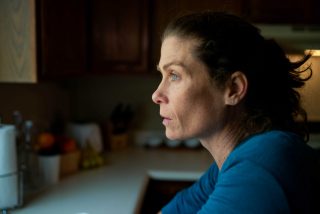
Yes, there are natural environmental factors that play into the development of addiction. That also doesn’t mean that if you adjust course, and you pick up and move to a different state, it doesn’t remove the predisposition of what your child is struggling with.
In the same way, it doesn’t mean that if you ask them to cut off these friends or keep an earlier curfew that everything will go back to normal either. It all comes back to just that loss of control, the fact that human beings are imperfect, and we don’t always make the best decisions.
This doesn’t mean that we need to blame each other for the decisions that we make, or the situations that we find ourselves in.
We really want to focus on getting rid of that blame and just staying in the present moment. This is where we are right now, so let’s come up with a game plan to move forward and get to a better and more hopeful place.
Which Drugs Do Teens And Young Adults Abuse The Most?
Here in Colorado (our home state) especially, we see marijuana use in the teens, just because it is legal so there is a very high level of accessibility. We see alcohol use, because the accessibility is also high. Then we see a plethora of different substances like cocaine, heroin, methamphetamine.
However, for the most part, the highly-abused substances we see in the teen and young adult population are going to be:
- Marijuana
- Alcohol
- Over the counter substances (Benadryl)
Is Marijuana Addictive?
New studies are coming out that due to the potency of cannabinoids that are being sold in stores now, there are physical and mental withdrawal components to marijuana as we as we can buy it and sell it today. One such study indicates there has been a 212% increase in THC content in marijuana between 1995-2015.

With that being said, whenever there is a withdrawal potential, there is going to be some sort of addictive component to it. Because whenever we experience withdrawal symptoms, continuing to use that substance is going to make those withdrawal symptoms go away.
That process leads to continued use and increased tolerance.
So there absolutely is a withdrawal potential and an addictive component to marijuana that has presented within the last 10 years. A decade ago, there weren’t studies that showed marijuana having high levels of addictive components within that substance.
Now that we’re seeing those high level THC potencies, we are seeing adolescents and young adults really struggling with high physical and emotional cravings. And we’re seeing those early onset withdrawal symptoms of irritability, loss of appetite, sweats, anxiety, etc.
With those symptoms present, it brings us back to being able to use that substance to cure those symptoms, which leads us into an addictive place.
Why Is Marijuana More Addictive Than It Used To Be?
One study compared the THC content in marijuana in the early 1990s to samples in 2018 and found that THC content had grown from 4% to over 15%.
Over the last five to 10 years, we’ve seen marijuana concentrates increase at rapid speeds. We’re also seeing different kinds of ways to administer marijuana including “shatter,” wax edibles, vaping, etc.
These forms are becoming so available to adolescents and young adults, that the way that it’s being distributed and grown, it is increasing that potency to super high levels, which is what brings on those addictive components and those withdrawal symptoms.
For Young Adults Using Marijuana To Cope With Anxiety And Stress, Is CBD a Safe Alternative To Marijuana?
When it comes to CBD, the studies are very new. So there are studies that are coming out saying that CBD is a safer alternative to marijuana and that it can be a therapeutic intervention.
However, my recommendation is, I would never encourage parents to substitute any sort of substances without the support and supervision of a medical professional.
In the same way I wouldn’t administer antibiotics that I found or purchased from someone to my loved one, I wouldn’t make a decision like that just because I felt like it was a safer alternative. It’s important to always consult with a medical professional when considering mood-altering substances.
Early research does show that there is a potential therapeutic intervention for the use of true CBD. The research is still new. My hope is that as we continue to see these studies come out and we continue to look into the research that’s being done, we can have concrete answers.
With the research being as new as it is, many people recommend waiting until there’s more concrete evidence before backing a substance like CBD.
What Do I Do If I Find Substances Or Drugs In My Child’s Room?
If you find substances in your child’s room, the first thing to do is take a deep breath, and stay calm.
The next thing I would say is to work as hard as you can to not make any assumptions. A lot of times, parents – from a place of caring and love – will start to curiously rummage around in their kids’ rooms and look through their stuff. They find things that they don’t necessarily want to find.
My recommendation is to have a direct conversation with your child about it. Be honest and authentic, say, “Hey, I was going through your stuff.” and hold accountability of your own.
I think that it’s safe to say that going through our kids’ rooms is never going to be a super exciting or happy feeling for them. And that’s okay, they don’t have to love the actions that you take in attempts to keep them safe.
But what seems to work best is being authentic and explaining,
“Hey, this is the reason that I decided to do this. This is why I took this action, and this is what I found. And to be very honest, I feel very scared. I feel very frustrated and overwhelmed by this.”
I suggest having direct communication and dialogue, giving your child a chance to be able to open up, rather than coming down hard. When we do this, we skirt all sorts of opportunities to really engage in a rich and healthy discussion about it.
What Do You Do If You Find Drug Paraphernalia In Your Child’s Room?
If you find something in your child’s room related to drugs, stay calm and really reflect on and express your feelings about it. This will help you approach the topic with your child.
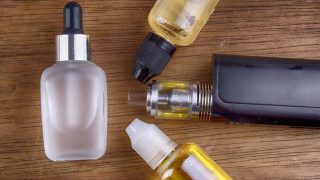
A conversation could go like this:
“Hey, I found these marijuana socks, and they make me feel really nervous. And I want to understand where you’re coming from, and what the reasoning was for wearing these.”
Always giving your child the opportunity to talk is important because I think that’s where we miss really amazing conversations. That’s where you’re going to have all of those feelings of judgment and shame and assumptions.
When we talk over the child or interrupt, it’s not going to be a really healthy dialogue. You’re not going to learn anything from your child. Teens and young adults have their own identity, and as parents we owe it to them to give them a safe space to express themselves instead of coming down hard with consequences and punishments.
Because what you’re doing there in an attempt to keep them safe is pushing them away, and you’re not inviting the opportunity for them to to express themselves.
Should You Ever Call The Police On Your Child?
This is one of the most difficult situations that I’ve heard feedback from parents about. The first thing I would say is that calling the police on your child does not mean you’re giving up on them.
You love them. You hold them accountable. You have really tough conversations with them. And as difficult as this may be to hear, sometimes we need to hold them accountable in order to keep them safe.
You absolutely should call the police or seek professional help when you’re nervous about your child’s safety. If you feel like your child is at risk, I would much rather have that young person arrested than overdose on a substance and no longer be here with us.
And so again, sometimes calling the police on your child or your young adult, it means that they’re going to go to jail, it means they’re going to get arrested. And that can be a super difficult pill to swallow. But sometimes I think that it’s necessary in order to keep that person safe.
The flip side of that is that you, as a family member, are also entitled to feel safe in your home. I recommend involving law enforcement when a person or family member feels like their physical safety is at risk, especially if someone is under the influence.
It’s always a good idea to make sure that you stay physically safe, and that your loved one stays physically safe. So I absolutely recommend involving the police when it comes down to a safety issue.
What Else Should Parents Think About When Talking To Their Child About Substance Use Or Substance Abuse?
I would recommend to anybody who feels nervous or who is unsure, or is thinking “Wow, I think that my child may be struggling,” to communicate, ask questions, and remain calm.
Also, reach out for help. You shouldn’t have to be in this by yourself. There are so many people who are waiting to support you and answer questions – I know that I’m always happy to!.
And if that means that we have a really positive outcome, that’s wonderful. But I would always want to be available to anybody who wants to seek support. It’s an incredibly scary process, and oftentimes a very unknown process on how to reach out and get support for someone who’s struggling.
As parents, we don’t have all the answers. It’s important to ask for help! Talk to our team about substance use at any time by calling 888-850-1890 or chatting with us online at www.sandstonecare.com.

